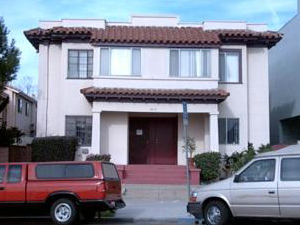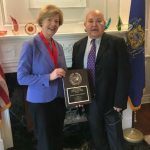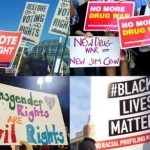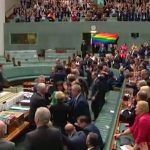
With less federal grant money to go around, the San Diego City Council voted March 21 not to allocate any funding to several LGBT organizations for fiscal year 2012, including the Neil Good Day Center, Townspeople and Being Alive San Diego.
The Neil Good Center provides a mailing address, showers and telephones for the homeless and is named after a gay man who ran for City Council in 1988 and who worked for several councilmembers. They had sought $500,000.
Townspeople is a housing organization in Hillcrest that helps people with HIV/AIDS find friendly landlords, affordable housing, referral services and even roommates for people with HIV. They asked for $84,000.
Being Alive San Diego asked for $107,800 for HIV information and education programs. The three groups were among 113 organizations and agencies seeking grant money from the U.S. Housing and Urban Development(HUD) Department.
Most of the public speakers lamented about the lack of funding for the Neil Good Day Center where the homeless can also do laundry at their downtown location. The current funding for the organization will run out on July 1, and it is still in operation.
“I’m not happy that Neil Good is not making (the list) today,” said District 3 Councilmember Todd Gloria.
District 5 Councilmember Carl DeMaio said he voted reluctantly to the funding motion overall, saying he also felt the Neil Good Day Center needed to stay open after July 1.
The 7-0 motion by District 2 Councilmember Kevin Faulconer approved funding for every organization that received four or five votes that were recommended by each councilmember.
No one on the Council recommended funding for the Neil Good Day Center. Townspeople picked up recommendations by DeMaio, Lorie Zapf and Marti Emerald. Being Alive picked up one vote from DeMaio.
“This process clearly isn’t over,” said Council President Tony Young.
Faulconer said HUD is expected to announce whether they can donate more funds on April 8, and if so, the matter will be returned to the Council.
“The people who really need help are being left behind,” said Thomas McSorley, the Director of Resource Development for Townspeople. “We’re known for finding people a place to live.”
McSorley said the community development block grant (CDBG) process “needs to be reformed.” He said all organizations have to approach each councilmember and request funding. Councilmembers cannot talk with each other about who is recommending funding for which organization as that would be a violation of the Brown Act.
Despite that AIDS has been around for 30 years, “this is one of the areas that continually gets cut,” said McSorley.
McSorley said Townspeople wanted to apply for three grants, but the complicated rules and other conditions prohibited that. He said they wanted to get a grant for solar power on an affordable housing building they purchased, but they could not qualify for it.
“The kind of hoops they make us jump through is incredible,” said McSorley.
A message was left for Being Alive, but they could not be reached for comment.
Funding of $102,731 was granted for Family Health Centers which operate the clean syringe exchange program. They got votes from Gloria, Faulconer, Sherri Lightner and Emerald. This program allows IV drug addicts to exchange dirty needles with clean needles, and its purpose is to lower infections to AIDS and Hepatitis C among addicts, their families, paramedics, police officers and children who might find a dirty needle in a park.
Organizations had to submit applications by the deadline of Dec. 10, 2010, for fiscal year 2012, and eight application workshops were conducted.
The agencies which did receive funding included: Alpha Project for the Homeless; St. Vincente de Paul Village; Alliance for African Assistance; Union of Pan Asian Communities; District 4 Senior Resource Center; the Center for Community Solutions for helping victims of sexual assault, domestic violence, and elder abuse.
Other groups which did not receive funding included a homeless maternity shelter program, the Interfaith Shelter Network, a youth program at the Barrio Station, lead safety enforcement program and the YMCA shelter for homeless youth.















